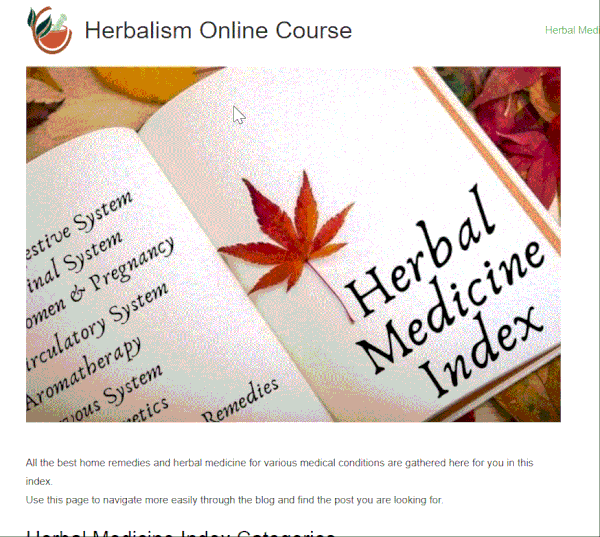Hot flashes, palpitations, irritability, and weight gain.
These are just some of the symptoms of menopause.
Why does this happen to women and what natural treatments can relieve menopause symptoms?
Menopause Causes and Symptoms
Female menopause usually occurs between the ages of 45-55, after twelve months without a menstrual period.
Following a decrease in estrogen levels, the menstrual cycles begin to disappear.
At the same time, various negative effects begin.
These symptoms include one or more of the following:
Mood changes, hot flashes, vaginal dryness, decreased libido, vaginal and urinary tract infections, insomnia, and more.
The most common and well-known phenomenon is hot flashes.
Its frequency varies from woman to woman.
The phenomenon is characterized by waves of extreme heat and sweating followed by a feeling of cold.
These hot flashes mainly appear at night.
Natural Treatment for Menopause Symptoms
Contact Therapy for Menopause Symptoms
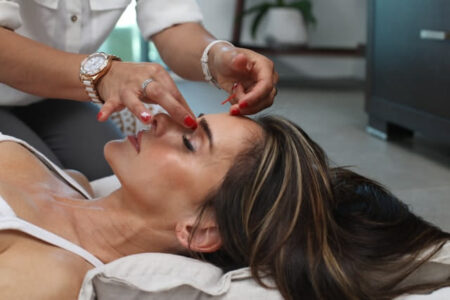
Reflexology, acupuncture, and the Korean acupuncture Su Juk can greatly support and strengthen during menopause.
It is desirable and worthwhile to combine them in treatment.
Sport for Mood Improvement
During menopause, it is important to maintain an aerobic exercise routine.
The recommended dose is an activity equivalent to brisk walking for 30 minutes daily.
Studies show that exercise raises the level of chemicals responsible for the mental state, such as serotonin.
Therefore, exercise is effective in improving mood.
Excessive Water Drinking to Reduce Hot Flashes
This may sound too easy, but simply drinking lots of cold water throughout the day can reduce hot flashes by up to 25%.
One of the reasons it is important to drink more water during menopause, in general, is that the feeling of thirst is often replaced by a false feeling of hunger.
As a result, we eat more and drink less, therefore we gain weight and have more difficulty managing our daily lives.
Sharing is Caring

You should be aware that this is a process that every woman experiences.
As different women experience it in different ways.
You should share what you are going through with friends and family,
so that they will be more understanding about what causes the fluctuations in the mood you are feeling.
Recommended Nutrition for the Treatment of Menopause Symptoms
Vitamin E to Treat Hot Flashes
Many studies have shown that the antioxidants in vitamin E compounds are especially effective in treating hot flashes.
These antioxidants are also effective in treating night sweats that prevent us from enjoying sound sleep.
Foods that are rich in vitamin E are whole grains like rye and whole rice.
You should also add fruits like watermelon and strawberry, nuts and legumes to your diet.
Soya and Its Products
It is highly advisable to include soy products in your diet, to reduce hot flashes during menopause.
Soybeans contain a plant substance called phytoestrogens.
These phytoestrogens help the body achieve hormonal balance, and as a result, reduce hot flashes.
Various gynecologists recommend soy-containing supplements when you can actually just eat soy products.
Soy products that you can add to your diet are sugar-free soy milk, tofu, Tampa, and miso.
You can also buy frozen soybeans in the pod and heat in a pot with water.
Flaxseed as a Phytoestrogen
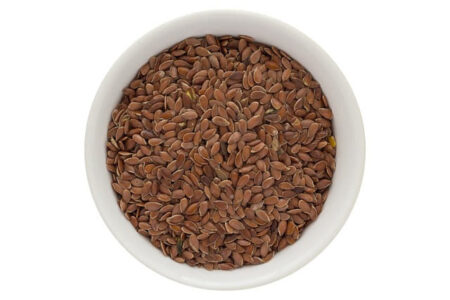
Flax seeds contain phytoestrogens called lignans.
These substances help in hormonal balance during menopause.
You should consume 1-2 tablespoons of ground flaxseed a day.
Grind the seeds just before eating to prevent oxidation of omega 3 and other delicate ingredients.
You can add the flax seeds to smoothies, salads, or just sprinkle them on the food.
Foods That Contain Phytoestrogens and Calcium Strengthens and Support Menopause:
Consume more foods that contain phytoestrogens and calcium as they strengthen and support menopause.
Such foods are soy products, flax seeds, whole grains, oats, nuts, almonds, various seaweeds, vegetables, green leaves, and more.
Remove warming and stimulating foods from your diet.
Such foods are red meat and foods containing empty carbs, caffeine, and alcohol.
Vitamin C
Vitamin C and bioflavonoid compounds (formerly known as vitamin P) are essential substances for the body.
These substances can treat allergies and inflammation naturally.
Although hot flashes are a natural phenomenon that is not caused by infection,
it was found that eating foods rich in vitamin C and bioflavonoid compounds can greatly relieve those suffering from hot flashes.
Foods that are rich in these substances are citrus fruits, red wine, and also tomatoes.
Herbal Medicine for the Treatment of Menopause Symptoms
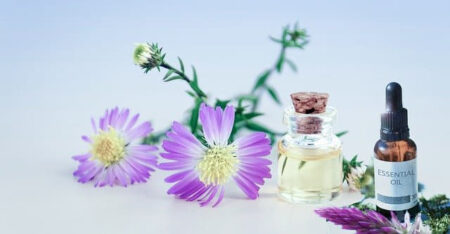
Black Cohosh
The use of the cohosh plant is very common in Europe and is mainly used to treat symptoms of menopause and hot flashes in particular.
The active ingredient in the plant acts as a natural substitute for the female estrogen hormone,
which balances the hormonal state in the body.
Note that the effects of cohosh begin only after a while and the relief of hot flashes should not be expected immediately.
Moreover, hormone replacement is not suitable for anyone and therefore a doctor should be consulted before starting this treatment.
Stellaria Media
The common Stellaria plant is considered in traditional medicine as a risk-free remedy for various medical conditions.
Such conditions are joint pain, pneumonia, asthma, infected wounds, and also symptoms of menopause.
This herb can be eaten whole, or you can look for extracts and dried leaves in the local health stores.
A daily dose of a common Stellaria can alleviate the severity of hot flashes and sometimes even eliminate them completely.
Sage
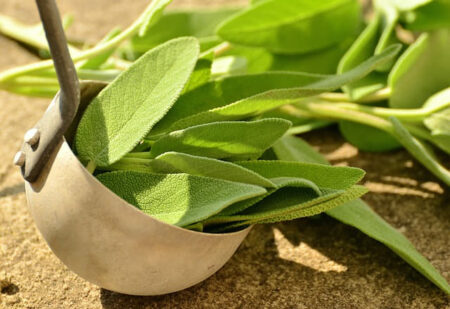
Menopausal women who drank at least one cup of natural sage tea a day,
were found to suffer much less from hot flashes than women who did not drink it.
Sage has a very wide range of health benefits,
and unlike other solutions from the plant world, it does not contain hormone replacement.
Dioscorea Villosa for the Treatment of Menopause Symptoms
The Dioscorea Villosa is a North American plant, also called wild yam.
Wild yam supports ovarian function and is suitable for the treatment of symptoms of menopause.
It can treat hot flashes and night sweats in addition to its anti-spasmodic and anti-inflammatory properties.
It synergistically complements black cohosh, stabilizing, and assists hormonal balance while relieving the menopause symptoms.
Glycyrrhiza Glabra
Glycyrrhiza Glabra, also known as licorice, is a plant that grows wild in West Asia and South Europe.
It has been used medically for centuries around the world, to treat a wide range of common health conditions.
It is used for treating ailments related to the digestive, respiratory, and immune systems.
And also for the general strengthening of the body.
The root is also effective in supporting and stabilizing processes in the ovaries.
It is effective in the early stages of menopause when the condition deteriorates quickly and is accompanied by hot flashes and a difficult mental state.
Licorice root has a moisturizing quality, it contains gel-like shielding substances and is also effective in dry conditions of the skin and vagina.
Verbena Officinalis
Verbena Officinalis is one of the most complete and useful herbs in herbal medicine, in terms of its wide effect on most systems of the body.
It is native to Europe and is known for its medicinal uses around the world, mainly due to its effect on the nervous system.
Verbena generally helps in sedation and gentle regulation of physiological and metabolic processes in the body.
It is an important plant for treating the mental aspects of menopause.
Such aspects are conditions of overload and prolonged mental stress.
These conditions are accompanied by headaches, migraines, difficulty sleeping, anxiety, depression, and general stiffness of the body.



